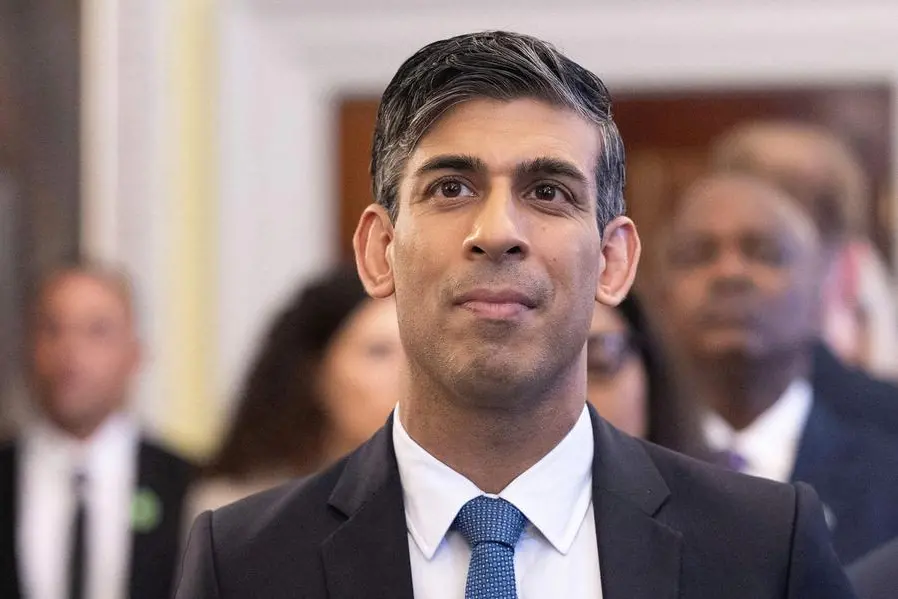PHOTO
Britain's ruling Conservatives were plunged into crisis on Friday as they suffered big losses in Prime Minister Rishi Sunak's first major electoral test since he took office last year.
In the depths of the worst cost-of-living crisis in decades, the local council elections held across swathes of England on Thursday illuminated the main parties' standing ahead of a UK-wide general election expected next year.
The worst fears of Sunak's Tories were confirmed as results came in through Friday, the party losing more than 1,000 seats and control of dozens of councils before even all the counting had ended.
Earlier in the day Sunak, who took power last October, admitted the results looked "disappointing". But the 42-year-old claimed he was "not detecting any massive groundswell of movement" towards the main Labour opposition or "excitement for its agenda".
However, with most of the 8,000 seats counted by early evening -- just as Britain gears up for Saturday's coronation of King Charles III -- Labour had gained more than 500 councillors and seized at least 21 new districts.
Its leader Keir Starmer crowed that "the results are clear".
"Make no mistake, we are on course for a Labour majority at the next general election," he told cheering activists in Medway, southeast England, one of the councils won by his party from the Tories.
"We've won the trust, the confidence of voters, and now we can go on to change our country."
- 'Older news' -
Starmer has been remoulding the party after it suffered its worst general election performance in decades in 2019, when ex-prime minister Boris Johnson won by a landslide vowing to "get Brexit done".
The party has enjoyed double-digit national polls leads since late last year, as the Conservatives felt the fallout from several chaotic weeks when they ditched Johnson and then Liz Truss as leader in quick succession.
Tory transport minister Huw Merriman indicated his party was still paying the price for that tumult, after it lost control of at least 45 councils.
Local constituents have been "talking about older news about former prime ministers -- but saying your current leader seems to have what it takes", he told the BBC, insisting that Sunak was on the right track.
However, two projections of how the vote would translate in a general election -- expected next year -- showed Labour with leads of eight and nine points over the Conservatives.
Pollsters warned that did not guarantee the opposition party an outright majority.
Nonetheless Labour was celebrating notable wins nationwide. It wrested control of prized targets such as Dover and Medway in southeast England, Plymouth in the southwest and Stoke-on-Trent in the Midlands -- where in 2016, 70 percent of voters backed Brexit.
Labour is particularly targeting former strongholds in northern England, the so-called "red wall", which crumbled in 2019.
- 'Exceeding all expectations' -
The smaller Liberal Democrat party was also performing strongly, gaining over 400 seats and control of 11 more councils.
It was making inroads in wealthy Conservative districts on the edge of London that are represented nationally by members of Sunak's cabinet -- the "blue wall".
The centrist opposition party took control of the council in Windsor and Maidenhead, west of London, an area represented in Westminster by former prime minister Theresa May.
"We are exceeding all expectations," Liberal Democrat leader Ed Davey said.
"We have delivered a hammer blow to the Conservative party in the blue wall ahead of next year's general election."
Meanwhile, the Green Party took full control of a council for the first time, in Suffolk in eastern England.
Jonathan Carr-West, chief executive of the Local Government Information Unit, noted that the Conservatives were already defending a dismal showing the last time the same council districts voted in 2019.
"Voters may well return to the Conservative fold" at the next general election, he told AFP.
"But yes, it's looking pretty bad for them so far. To do badly from a very bad baseline in 2019 is very, very bad indeed."
Sunak meanwhile defended a law change requiring voters to show photo identification for the first time, a move denounced by Labour and others as an attempt to suppress the vote.
The Electoral Commission vowed to review numerous reports of voters being turned away on Thursday.





















